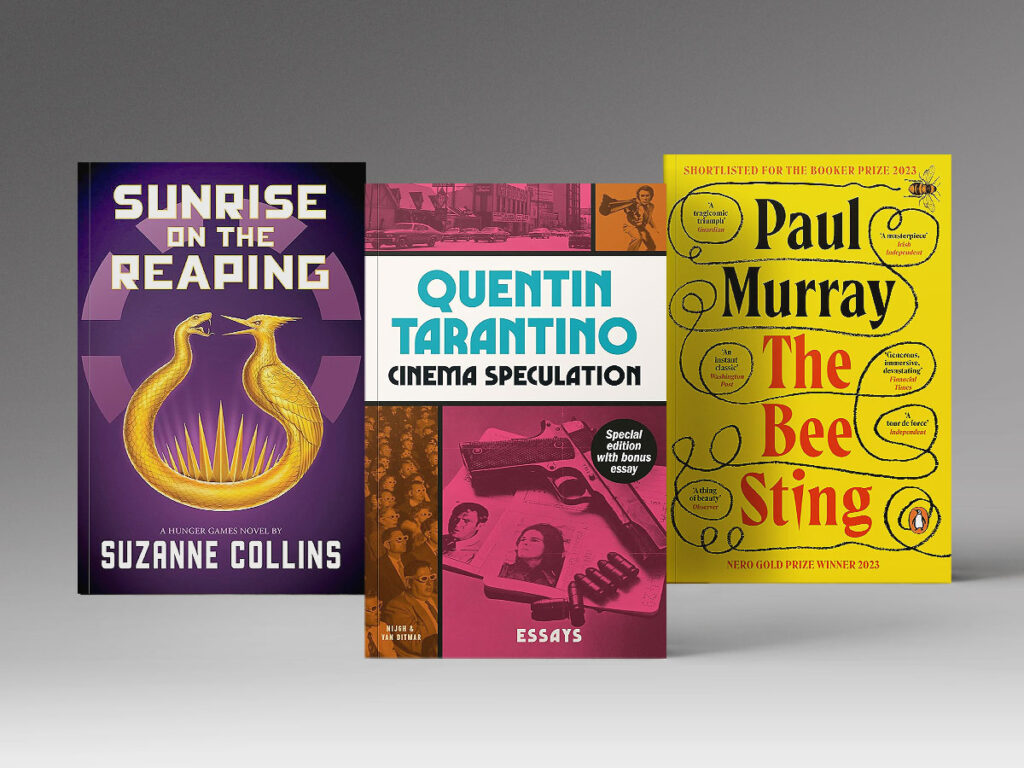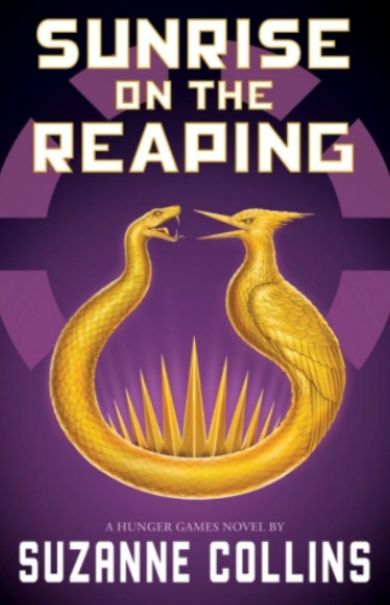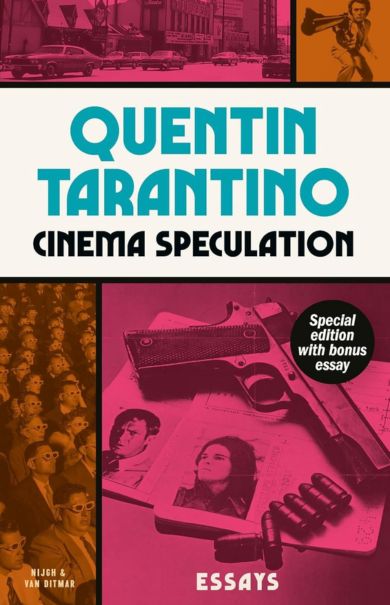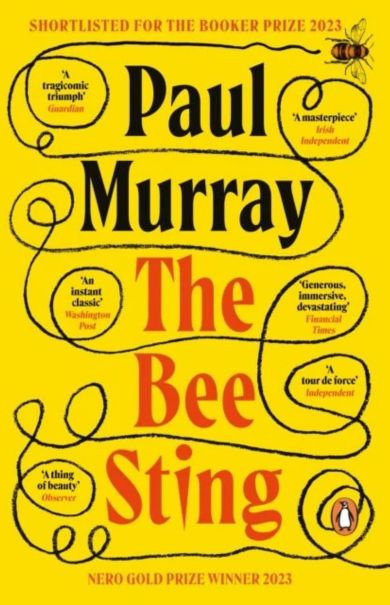
Our April picks bring stories about people tested by oppressive systems, family tensions, and the glare of the big screen. Among the authors featured are Suzanne Collins, who reveals the dark beginnings of a familiar Hunger Games character; Quentin Tarantino, who passionately recounts the cinema of his youth; and Paul Murray, who masterfully explores a family saga set in the aftermath of economic disaster.
This series is not sponsored. The only standard for receiving the unofficial Books Factory stamp of approval is the subjective value of the works themselves.
Suzanne Collins, Sunrise on the Reaping
Suzanne Collins takes us back to the 50th Hunger Games. Here, we meet Haymitch Abernathy from District 12 as a young man, forced to leave his loved ones and travel to the Capitol with three other tributes: a friend who’s like a little sister, a compulsive strategist, and the town’s biggest snob.
In “Sunrise on the Reaping”, we see Haymitch before he becomes Katniss Everdeen’s bitter mentor. Collins crafts a portrait of a character torn between survival and morality. The familiar themes of spectacle, the Capitol’s ruthless machinery, and the lengths people go to to survive return.
This is also a story about rebellion—not just against the system but against oneself. Collins shows precisely how trauma shapes a person and how easily audiences become complicit. Though aimed at a YA audience, the emotional weight is substantial.

Quentin Tarantino, Cinema Speculation
Quentin Tarantino has never hidden his obsession with the movies of the 1970s and 1980s. In “Cinema Speculation”, he dives deep into the stories and filmmakers that shaped his cinematic DNA.
He shares personal tales about his favourite directors, like Don Siegel, Brian De Palma, and Sam Peckinpah, and peeks behind the scenes of films that are now cult classics but were once seen as risky experiments. We also visit vanished movie theatres alongside a young Quentin to watch hits like “Dirty Harry” and “The Wild Bunch”.
This isn’t an academic work but a deeply personal essay about a love for cinema that can surprise, shock, or simply delight. Tarantino expertly mixes film criticism, memoirs, and conversations with stars in a trademark style that’s lively and unapologetically enthusiastic.
For cinephiles—an absolute feast. For everyone else—a fascinating look at what makes certain movies unforgettable.

Paul Murray, The Bee Sting
Critics have hailed “The Bee Sting” as one of the finest novels of recent years. It has won awards like the Eason Novel of the Year and the Nero Gold Prize and was shortlisted for the Booker Prize.
Dublin-born Paul Murray—often compared to Jonathan Franzen—tells the story of the Barnes family. Once wealthy, they are teetering on the edge after the global financial crisis wipes out their fortune. Dickie, the owner of a failing car dealership, retreats into the woods to build a shelter from an impending apocalypse. His wife, Imelda, clings to the appearance of normalcy amid emotional ruin. Their daughter, Cass, numbs herself with alcohol, squandering her poetic talent. Only young PJ tries to stitch the family back together—ill-equipped though he is.
“The Bee” Sting is a sprawling, multi-voiced family saga. Murray shows with great empathy how personal disasters mirror societal fractures and how global crises seep into individuals’ lives. It’s a novel about shame, collapse, and the faint hope that something might be saved.

Three Intense Picks
April’s selections are intense reads. Collins pulls us back into Panem with more intimate stakes. Tarantino writes the way he directs—energetically and without filters. Murray delivers a novel that balances grand storytelling with intricate precision. Each invites readers to lose themselves for a few long evenings.
Even if it means stepping into the Hunger Games arena.
